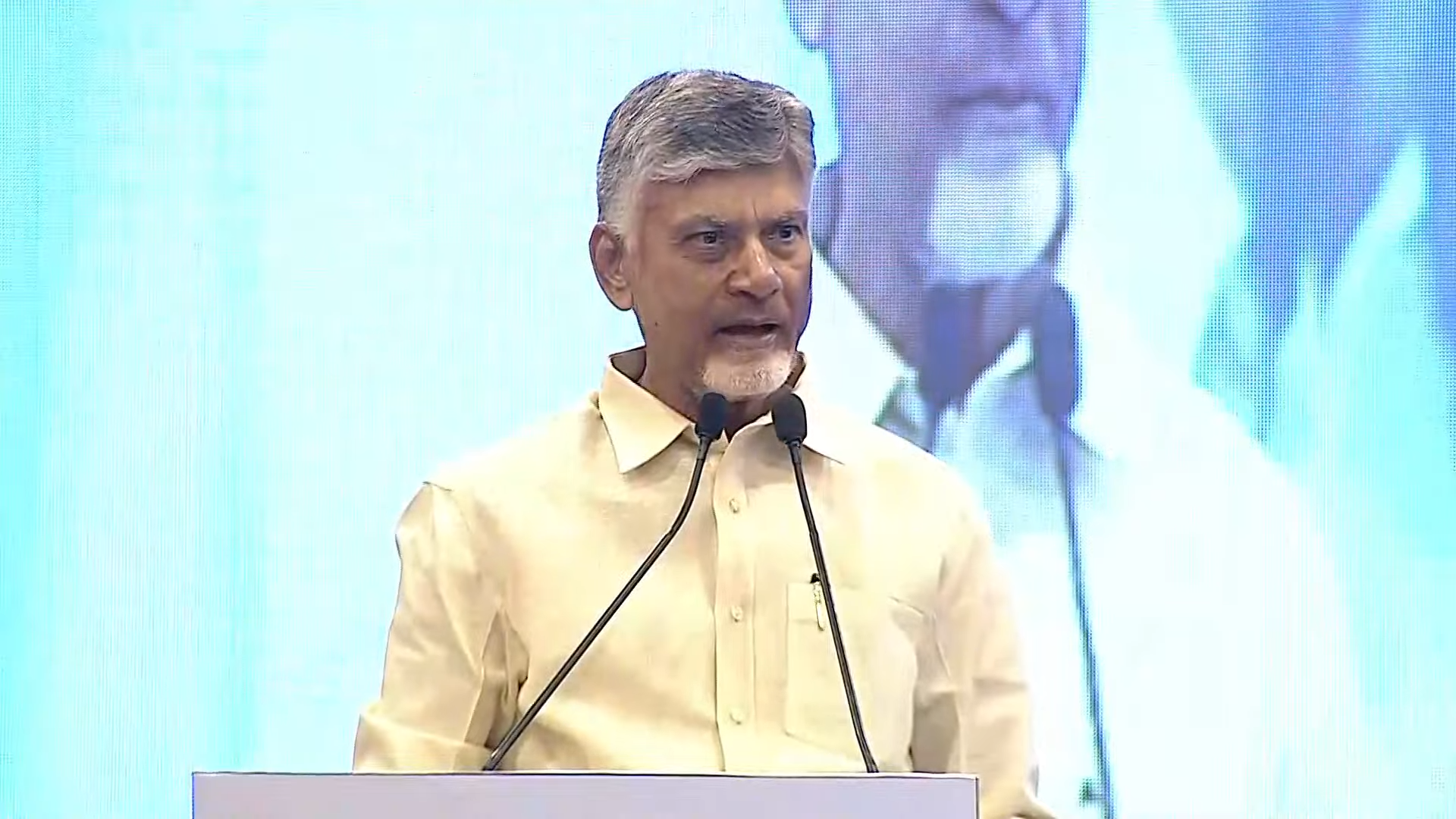Naidu highlighted India’s tech evolution from the 1990s IT boom to the Quantum Age, announcing a fully operational Quantum Computing Ecosystem in Amaravati by 1 January, 2026
Published Jun 30, 2025 | 9:04 PM ⚊ Updated Jun 30, 2025 | 9:04 PM

Quantum Leap: Chandrababu Naidu says Amaravati will become India's Quantum Valley
Synopsis: Andhra Pradesh Chief Minister N. Chandrababu Naidu on 30 June unveiled his vision to develop Amaravati into a global hub for quantum technologies at the Amaravati Quantum Valley workshop in Vijayawada. The event, jointly organised by the state government, Department of Science and Technology, TCS, and L&T, brought together leading experts and institutions in quantum computing.
Andhra Pradesh Chief Minister N Chandrababu Naidu on Monday, 30 June, unveiled his vision to transform Amaravati into a global capital for quantum technologies at Amaravati Quantum Valley workshop held at Vijayawada.
The event, jointly organised by the Government of Andhra Pradesh, the Department of Science and Technology (GoI), Tata Consultancy Services (TCS), and Larsen & Toubro (L&T), brought together some of the top minds and institutions in quantum computing.
In his address, Naidu traced the evolution of India’s tech journey—right from the IT revolution of the late 1990s to the dawn of the Quantum Age—and stressed the critical role Andhra Pradesh will play in shaping the future of deep technologies. The chief minister announced that by 1 January, 2026, a fully operational Quantum Computing Ecosystem will be set up in Amaravati.
Chief Minister Chandrababu Naidu said: “I began promoting IT when my son Lokesh was just a child. Now, he’s tasked with taking Quantum forward. Back in the 90s, we built Hitech City in Hyderabad. Now we are building Quantum Valley in Amaravati. The world has moved from internet to AI. Now it’s time for Quantum.”
He recalled his early efforts in pushing for IT adoption when few believed in its potential. “We had to fight regulatory battles to deregulate telecom. Today, a cellphone is more essential than food for many. Similarly, Quantum is the future, and we want India—not just to adopt it—but to lead it,” he said.
Explaining the global relevance of this initiative, he said: “Technology and knowledge are today’s weapons. War is no longer relevant. We must leverage our demographic strength and English-speaking population to establish ourselves as a global hub. India and the U.S. must collaborate for the global good.”
He underscored the integration of Quantum computing in sectors like governance, personal medicine, vaccine production, aerospace, drones, and education. “I read, study, and learn constantly—so I can bring the best to my people. We will take the Amaravati Declaration to its logical conclusion with full support from the central government.”
Delivering the keynote, Nara Lokesh , Minister for IT, Electronics reflected on the chief minister’s visionary role in bringing IT to India. He said: “Today marks a new chapter. I was in 7th class when the chief minister launched the IT revolution. Now, I am honoured to lead the Quantum movement in Andhra Pradesh,” he said
He announced that Amaravati will soon host the IBM-2 Quantum Computer with 156 qubits, making it the first of its kind in South Asia. Lokesh stressed on the need for a Quantum-ready workforce, and urged premier institutions like IITs to co-develop curriculum for future quantum engineers.
“This is not just about joining the race—we want to leapfrog ahead. Amaravati Quantum Valley will generate over 1 lakh jobs and many more in research and innovation,” he said.
Lokesh shared his own experience as a Stanford graduate and World Bank intern, saying even he needed to consult ChatGPT to understand Quantum. “We are all students. But what matters is our willingness to learn, adapt, and lead,” he said.
Bhaskar Katamneni, Secretary, ITE&C Department, Andhra Pradesh government, said that the Amaravati Quantum Valley initiative represents a leap forward for India’s Deep Tech leadership, supported jointly by the Centre and the State.
“We aim to accommodate the full stack of quantum technologies within this Valley—from computing to sensing, materials, and communications,” he said. He added that the workshop’s roundtables and technical sessions were structured to develop an actionable roadmap toward this ambition.
Sandip Patel, Managing Director, IBM India, termed the workshop “a defining moment for India’s Quantum journey.” He noted that over 200,000 individuals globally have accessed IBM’s quantum computing platforms and that IBM has already trained over 900 faculty members in India. “We are seeing the beginning of a true quantum shift in how science, business, and governance will operate in the coming decade,” he said. “India, with its demographic advantage, can take these innovations from lab to market—and IBM wants to be part of this journey.”
Scott Crowder, Vice President of IBM Quantum Adoption, outlined critical use cases—from designing long-life batteries and discovering new antibiotics to improving patient outcomes and managing financial risk. “Our mission is to bring useful quantum computing to the world,” he said, adding that IBM has 15 utility-scale quantum computers operational globally and plans to launch its next-generation system, IBM Quantum Starling, in 2029.
V. Rajanna, President – Technology, Software & Services, TCS, hailed Andhra Pradesh’s initiative as visionary, noting that quantum technologies are interdisciplinary and transformative. “This is the right time to invest in quantum. As the UN has declared this the International Year of Quantum Science and Technology, India’s leadership will be key,” he said. TCS pledged support in integrating quantum use cases into both public services and industry innovation.
(Edited by Ananya Rao)
